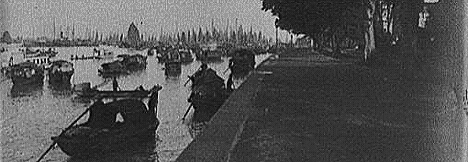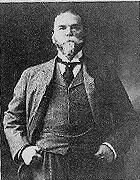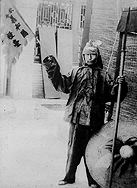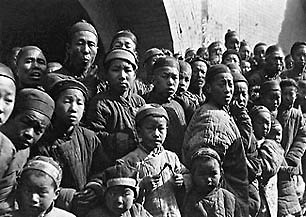
Boxer Rebellion
The Boxer Rebellion was a bloody uprising in northern China in
1900 in which hundred of Chinese and more than 200 people from
other countries were killed. The Boxer Rebellion climaxed a
movement in the late 1800’s against the spread of Western
and Japanese influence in China. This movement was started by a
secret Chinese society called Yihequan 
The end of the nineteenth century sparked a feeling of
anti-foreign. In China at this time period, this feeling was
stronger than ever and resulted in a chain of events in China.
Countries like France, Russia, Germany, Japan, and Great Britain,
who controlled China’s major ports and cities, was divided. 
Because of this, the United States secretary of state, John
Hays, thought of a policy called Open Door. The Open Door policy
meant that powerful countries have equal opportunities to trade
with colonial, or developing countries. When countries agree to
observe the Open Door Policy in an area, they agree to permit
their merchants and investors to trade freely there. As a result,
the Open Door Policy took all the economic privileges from China
and shared them among the great powers, and also caused the
hatred of any foreign power. A terrorist movement known as the
Boxer Rebellion in 1900 swept China suffocated, by stronger
imperialistic nations. 
John Hay
The Yihequan, a society that was originally connected with the White Lotus sect, which opposed the Manchus, the rulers of China, started the movement. Westerners nicknamed the members of the group Boxers, because they practiced gymnastics and calisthenics. In the 1890’s, the Boxers began to oppose the spread of foreign influence in China. Many other Chinese shared these anti-Western feelings, and even the Manchus secretly approved the movement.
 In 1900, the Boxers set out
to destroy everything they considered foreign. They slaughtered
Chinese Christians, missionaries and other persons from foreign
countries, and anyone they found who supported Western ideas.
They burned houses, school, and churches. When foreign diplomats
in Beijing sent out calls for troops, the Manchu government
declared war against the foreign powers. From June 21 to August
14 1900, the Boxers and government troops invaded the official
residences of the foreign diplomats called Legations.
Foreign guards, civilians, and Chinese Christians courageously
resisted. Finally, a rescue force from eight nations crushed the
uprising.
In 1900, the Boxers set out
to destroy everything they considered foreign. They slaughtered
Chinese Christians, missionaries and other persons from foreign
countries, and anyone they found who supported Western ideas.
They burned houses, school, and churches. When foreign diplomats
in Beijing sent out calls for troops, the Manchu government
declared war against the foreign powers. From June 21 to August
14 1900, the Boxers and government troops invaded the official
residences of the foreign diplomats called Legations.
Foreign guards, civilians, and Chinese Christians courageously
resisted. Finally, a rescue force from eight nations crushed the
uprising.
On September 7, 1903, the Manchu government and representatives of 11 other nations signed a final settlement, called The Boxer Protocol. China agreed to execute several officials and punish many others, destroy many forts, and pay about $300 million in damages. In 1908, the United States returned part of the money it had received, to be used for educational purposes. Britain and Japan later did the same.